|
Ejaculate Responsibly Campaign A pro-choice AND pro-life male accountability campaign Spring 2024 When your bodily fluids have the potential to cause harm (such as unwanted pregnancy and/or exposure to STIs), you must be ethical, intentional, and accountable for your sexual decisions and ejaculation. “Men mostly run our government. Men mostly make the laws... if men were actually interested in reducing abortion, it didn’t need to take fifty years [after the fall of Roe v. Wade]. At any point, men could have eliminated elective abortions in a very short amount of time—a matter of weeks—without ever touching an abortion law, without legislating about women’s bodies, without even mentioning women. All men had to do was ejaculate responsibly. They chose not to. Today, they continue to choose not to” (Blair, 117). What inspired this campaign? February 14—March 24, 2024 is the nation's largest anti-abortion campaign: 40 Days for Life. The Women’s Center’s Ejaculate Responsibly campaign (a poster series with twelve unique messages) is an invitation to think differently about abortion, sexual politics, and accountability. This awareness campaign is inspired by Gabrielle Blair’s (2022) book, Ejaculate Responsibly: A Whole New Way to Think About Abortion. The purpose of this campaign is to provoke deeper interrogation of the pro-life/pro-choice dichotomy, which is a division or contrast between two things that are or are represented as being opposed or entirely different. Using Blair’s framework, we aim to bring a fresh perspective through awareness and attention to men’s choices and their primary role in causing unintended pregnancies. Knowing this, how can we change it? Ending unintended pregnancies and abortion is simple!
Men are responsible for their own sperm—they choose where it is placed. Men must be ethical, intentional, and accountable for potential harm caused by their sexual decisions and ejaculation (whether causing pregnancy or infecting a partner with STIs). The choice to prioritize one’s own desires/pleasure at the expense of others is an example of entitlement rooted in power inequality and privilege. Unfortunately, this is rarely discussed. There are many reasons for this, mainly that “our society is set up to protect men from the consequences of their own actions” (109). How have men’s choices impacted women? Historically and today, we live in a patriarchy. A patriarchy promotes and centers male/masculine privilege and maintains systems in which most positions of power, authority, and control are dominated by men. Putting the burden of all sexual and reproductive responsibility on women is a form of male privilege and sexism. While men have the most control and choice in the context of sex, it is women’s choices and bodies are endlessly critiqued, controlled, punished, and shamed. Despite how patriarchy naturalizes (“this is just the way things are”) women being over-responsible and men being under-accountable, women are never responsible for men’s behavior. Men are responsible for their own choices, behavior, and bodily fluids. Men have the most control and choice in the context of sex by:
Pregnancy Concerns
These differences matter and impact women’s lives long-term, especially in the context of our social and economic systems that have been set up to intentionally pay women less and/or not be compensated for their labor at all. Gender Violence Impacts In addition, the prevalence of men’s sexual and relationship violence are significant factors that take away the reproductive choices of women.
Conclusion People of all sexual orientations and genders who want to have sex can have wonderful, fulfilling sex lives without causing pregnancy. There are many ways to experience sexual pleasure without the risk of pregnancy: masturbation, using hands/fingers/mouth/tongue to stimulate your partner, using sex toys, or only having sex with people who are unable to cause pregnancy. Abstinence is also a great option for some. After all, let’s be clear: no one is entitled to sex, ever. Responsible ejaculation is both a pro-choice AND pro-life solution that is not rooted in controlling, coercing, or forcing women to give birth. This solution places responsibility where responsibility belongs: it is men’s responsibility to ensure they don’t impregnate. Men must take personal responsibility for their own sperm. We need to raise the bar for men. We share these messages because:
We believe in men’s ability to make safe, thoughtful, and equitable choices that respect women. We believe men can and must ejaculate responsibly. [1] Binary language is used for the purpose of conciseness. When we reference men we are referring to cis men, people who have sperm, and people assigned male at birth (AMAB). When referencing women we are referring to cis women, people who have the capacity for pregnancy, and people who are assigned female at birth (AFAB).
0 Comments
https://www.stcloudlive.com/business/9-in-st-cloud-area-chosen-for-2024-cohort-of-harvard-program-in-minnesota
"ST. CLOUD — Nine St. Cloud area residents have been chosen for the 2024 cohort of the Harvard Business School’s Young American Leaders Program in Minnesota (MYALP). The idea-sharing program will be May 19-22 on the University of Minnesota Twin Cities campus, according to a news release. It will teach young leaders about how to work across sectors to help their communities prosper inclusively. The nine St. Cloud area residents selected to participate in the Young American Leaders Program 2024 are:
Since 2019 the Greater St. Cloud Development Corp. has led the effort in identifying leaders to participate in the program, according to the release. More than 60 people from Duluth, Fargo-Moorhead, Mankato, Minneapolis-St. Paul, Rochester and St. Cloud will be participating in 2024. NeTia Bauman, CEO and president of the Greater St. Cloud Development Corp., said those chosen to participate in MYALP have a track record of civic engagement in cross-sector collaborations, according to the release. The program interweaves case studies, insights from national and Minnesota practitioners of cross-sector leadership, diverse perspectives on the current state economy, and research presentations from scholars of inclusive economic development and the future of work. The Greater St. Cloud Development Corp., a nonprofit organization, is a private collaboration of regional businesses and other leaders within Benton, Sherburne and Stearns counties." 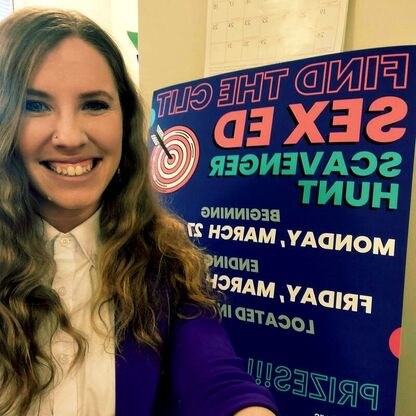 The gorgeous art piece pictured above is appropriately named "Glitoris." It's a powerful and imposing figure that we have been moving around campus. It is, you guessed it, a replica of the internal structure of the clitoris. This sculpture was inspired by Sophia Wallace's "cliteracy art" project and was re-created by one of our art students to raise awareness and educate people on the sexual pleasure of women (and people of other genders who have a clitoris). Even as a feminist in college, and as someone who has been very open about topics related to sex for most of my life, I don't think I heard someone else say the word "clit/clitoris," out loud, until I was in my early 20s. Even today, this word, this body part, is treated like a slur, a secret, a subjugated knowledge. How people (do not) talk about the clitoris is precisely why our campus Women's Center chose to do programming--events, speakers, tabling, awareness, outreach, postering, and hosting a (now infamous) "Find the Clit: Sex Ed Scavenger Hunt." Women genuinely enjoying sex incites astronomical levels of misogyny, even in a porn culture. Only in a patriarchal, sexist culture (religious AND secular) would such discomfort occur as a result of us unashamedly speaking and educating about this--even on a college campus, a space for adult learners, a space that many people see as protective "free speech," embodies "liberal values," and/or is supposedly "sexually open." Not so much. We received all sorts of strange responses and backlash for these events from inside and outside of our campus community: continuous complaints, threats, people trying to cancel or hide our event, people calling to yell at us for how "offensive" our programming is and labelled us "groomers" that are apparently promoting rape because we are educating grown adults on a college campus on the clitoris in 2023. It was a wild semester. When I used to speak and educate in faith communities that were often very conservative, I would remind them that sex IS for pleasure and pleasure is the primary reason people have sex. On what ground could I make such a claim (besides the fact that people who are capable of reproducing are only fertile a few days per month)?? Well, I had to remind church-goers in the pews that someone created the clit, and according to their belief system, it was God. Cool, right? I could feel the deep exhale from a very tense religious crowd. What a relief for folks to know that the sole and only purpose of a clitoris is for sexual pleasure. As I let that statement sink in, I could visibly see the wheels turning and belief systems challenged/shifted. Why is knowing this so powerful? Because a penis has multiple functions. A vagina has multiple functions as well. But God/the creator/universe very intentionally chose to bless the female body with an extra part for no other function but sexual catharsis. Oh, AND women can have multiple/endless orgasms!! So clearly the creator cared a whole lot about pleasure and women enjoying sex. In addition, the most clitoral sensitivity and nerve endings are external on the vulva, not inside the vagina. (Side note--that should also make the straights question the centrality of penis-in-vagina penetration-focused sex). Maybe all this female sexual power and capacity for pleasure is why men in this world have gone to such extreme lengths to control and colonize our bodies and sexuality. Maybe God is less uneasy and uncomfortable with female sexual pleasure than us humans are. God is less of a prude than your average dude or patriarchal church. Despite this, women's sexual pleasure is still so taboo and shamed--not only in conservative or religious communities--everywhere. However, discussing and educating others comprehensively on healthy, egalitarian, pleasure-based sexuality is a primary sexual violence prevention tool, proven by decades of research. Women's sexual pleasure is still treated as a frivolous privilege, a bonus, afterthought, etc. Research shows that even after multiple waves of sexual revolutions, the sex lives of women have not improved all that much over the past 50 years. Beliefs around sex roles and men's sexual entitlement/self-centeredness is still deeply-rooted. Lesbian women are the most sexually satisfied demographic, in stark contrast to women who have sex with men. What can men learn from lesbian and queer women? A whole lot. Men should be taking notes from lesbians... oh, and maybe ask their own female partners what they want in bed? For a society that is convinced it is so sexually liberated, we can't even get the most basic stuff down (saying anatomical body part names out loud, respecting boundaries and consent, and valuing the sexual pleasure of all). I highly recommend reading one of my most favorite books for more analysis on this: The Tragedy of Heterosexuality by Jane Ward. Ward is a lesbian who feels like she needs to be an "ally" to straight women. She feels the experience of too many straight women is a lifetime of suffering trying to be in relationship with sexist men... men who only want women because of what women do for them. And women who respond by exhausting themselves trying to convince/change/rehabilitate/fix men. Included in this straight-woman-suffering is enduring serious sexual violence, trauma, and simply mediocre or bad sex. I have observed this as a frighteningly common experience of women and resonate with Ward's findings as an advocate who has worked all of my professional life with survivors of sexual violence and on issues of patriarchal violence, feminism, and gender equity. I feel this has been a life-long frustration of mine: I constantly see fabulous, brilliant, powerful women in my life stifled by dweeby, clueless, or downright dangerous men who don't give a shit about them. My life goal is raising the insultingly low bar we have for men and calling them to a higher standard. Men's sexual entitlement to women's bodies, with minimal/no knowledge or care regarding how to please them, is not only pathetic, it's actually disturbing. It should be fundamental, expected, and *required* that people having (supposedly??) consensual sex are both enjoying it and experiencing pleasure. When bombarded by porn and media that portrays sex in a patriarchal, competitive, transactional, coercive, conquering, male-centered, and violent way, clearly this is a wild concept and needs more attention. What does that say about how shamed women's sexuality is when grown adults cannot even say the word "clitoris" out loud (and if they do, are deeply embarrassed about it, and avoid it all costs)? The personal is political and the political is personal. Women's sexuality and pleasure is not trivial. The fact that women's sexual pleasure is so devalued and stigmatized simply imitates, mirrors, and reflects broader structures and systems that devalue women as an entire class. If we are going to end patriarchy, sexism, and misogyny, our sexual practices, and how we talk about them, matter. We all need to become cliterate because women deserve better. A statement I wrote for our campus program below (the Center's name has been removed): Statement on Victim-blaming and Accountability for Patriarchal ViolenceFeminist analysis of patriarchal violence[1] recognizes violence as a functional tool of oppression (e.g., a dominant group forces submission of a subordinate group, particularly through an illusion of consent or when non-obvious coercive routes are exhausted).
Sexual violence, and all forms of gender and power-based abuse, are forms of political and social oppression that are not the result of an individual survivor’s choices, ontology, identity, vulnerability, character, or reputation. [The Center] uses, and is not opposed to, risk-reduction[2] as a general concept, idea, or strategy. The [Center] does employ some risk and harm-reduction strategies (e.g., education on egalitarian/ethical relationships and sexual consent and communication). However, many common risk-reduction strategies perpetuate oppressive belief systems rooted in sexism, heterosexism, colonialism, white supremacy, neoliberalism, etc. Many common risk-reduction tactics and “safety tips” directed at systematically subordinated groups are only marginally applicable in more rare, stranger-perpetrated sexual assault cases. These tactics often perpetuate inaccurate, sensationalized, and narrow stereotypes of sexual violence that do not capture the broad scope of the issue. Most sexual violence is committed by a person the victim knows and trusts (dates, partners, spouses, friends, co-workers, classmates), as well as authority figures, people of high status, and “helping” professionals in which the public often trusts (clergy, police and criminal/legal professionals, mental health professionals, educational professionals, coaches, supervisors, medical providers, politicians, military, celebrities, etc.) The [Center] is committed to working within our community to change the institutions, systems, and broader culture and politics that normalize violence. We want to invest in ending the harm, not change or constrain the liberty, movement, and behavior of survivors/the people harmed by those systems. We focus our efforts on primary prevention—this means uprooting systems of oppression, stopping violence before it starts, preventing perpetration, and building long-term solutions that address the fundamental causes of violence. In order to eradicate violence, violence must be confronted at every scale (interpersonal, familial/household, community, institutional, systemic, state, and global) and not remain isolated to only the interpersonal. Our vision is not only to abolish patriarchal violence and rape culture, but to make patriarchal violence unimaginable. This also means we work to shift power in a concrete and material way, end dehumanization and sexual entitlement, and resist the belief systems that view human beings as objects to be possessed, commodified, and controlled (the ideological foundations that precede violence). At the [Center], we do not believe behavior-change on behalf of individuals will ultimately stop or prevent violence, because abuse and violence are always a choice by the person/group who cause the harm, not the responsibility of the person/people victimized by it. There is no guaranteed way to “protect” oneself against relationship violence, stalking, sexual harassment, exploitation, and/or trafficking. While there are no perfect victims, a person can do everything considered “right/cautious,” take every “safety precaution,” or implement every “risk-reduction” strategy, and still be violated and abused. A victim/survivor’s choices or character are irrelevant to an abuser’s choice to abuse (e.g., dress, drinking, flirting, who they hang out with, sexual decisions, “risky/dangerous situations/environments,” how they respond/resist sexism and violence, reporting decisions, or levels of personal vulnerability, assertiveness, self-esteem, and/or confidence). Vulnerability is not inherent to an individual but is intentionally created by systems of oppression and dominant groups to subordinate, marginalize, and target particular groups. Violence/abuse perpetrated against a person is never, regardless of the context, the fault or responsibility of the person victimized. Perpetrators are motivated to perpetrate for many reasons independent of the person they abuse. In addition, promoting individual changes to a potential victim’s behavior does not mean the abuser won’t abuse, it may mean the abuser abuses regardless, and/or they may choose to target a different person to abuse. Either way, the abuser usually continues abusing as they are socially rewarded and not held accountable. While our center works to educate and raise consciousness on ethical relationships and sexuality, education alone is not enough to protect someone from abuse, because they do not hold systemic power and are not in control of the abuse. For example, educating people of color on racism (what racism is, how to identify it, etc.) will not stop systemic racism. Educating disabled folks on ableism or queer folks on homophobia, transphobia, and heterosexism will not end it. Likewise, a victim/survivor’s knowledge and ability to identify abuse does not mean the victim, on their own, can prevent it or has the power to stop it. Victim-blaming messages directed at subordinated groups are used to distract the public from challenging the oppressive behavior of dominant groups. Cis women, femmes, people who experience/d feminine socialization, and other marginalized groups often internalize and have been lectured their whole lives to modify their behavior, dress, etc. to appease or de-escalate cis men and other dominant groups. [Our Center] is committed to not perpetuating these messages. This statement was written for accountability purposes and to share our [Center's] analysis of violence as an informational and educational tool. If you see our [Center] share any type of messaging through social media, presentations, awareness campaigns, advocacy, support services, etc. that conflicts with the analysis above in this statement, please contact [us] immediately. Your feedback and accountability is critical to us. Sincerely, Rebecca Kotz [1] “Patriarchal Violence (PV) is an interconnected system of institutions, practices, policies, beliefs, and behaviors that harm, undervalues, and terrorize girls, women, femme, intersex, gender non-conforming, LGBTQ, and other gender-oppressed people in our communities. PV is a widespread, normalized epidemic based on the domination, control, and colonizing of bodies, genders, and sexualities, happening in every community globally. PV is a global power structure and manifests on the systemic, institutional, interpersonal, and internalized level. It is rooted in interlocking systems of oppression.” – Black Feminist Future [2] Examples of common sexual assault risk-reduction (primarily with strangers) strategies: carrying pepper spray or weapons, “buddy systems,” not drinking, pouring your own drinks, not leaving drinks unattended, not going anywhere alone, not wearing clothing perceived by men as “sexy”, self-defense classes, carrying your keys in your hand, not wearing headphones/talking on a cell phone, avoiding elevators and stairs, avoiding poorly-lit areas, remaining alert/vigilant, etc. Though these tactics or behavior changes can create a feeling of safety, they ultimately will not prevent sexual violence. 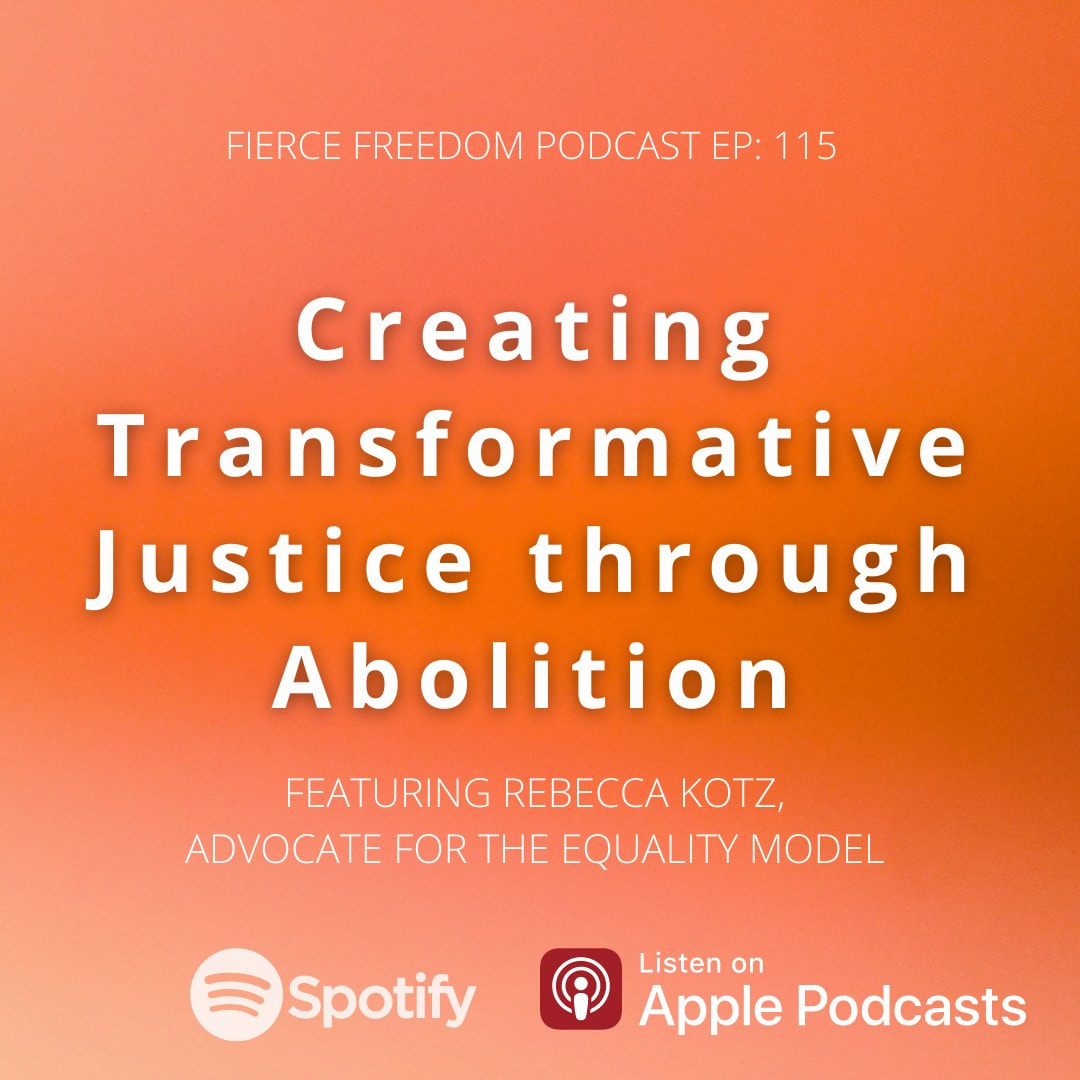 Our returning guest Rebecca Kotz points to specific moments of our history (e.g. the de-funding of social welfare systems) which have resulted in a system that relies heavily on the prison industrial complex and prostitution industrial complex systems. Rebecca asserts that the only way forward is dismantling these systems and uprooting harmful ideologies that inflict sexual violence on one group to protect another dominant group. She instead hopes we can all work together to challenge these beliefs and instead create a system based on transformative justice, an approach that seeks safety and accountability without relying on alienation and punishment or systemic violence. Cited Sources/More Resources Below:
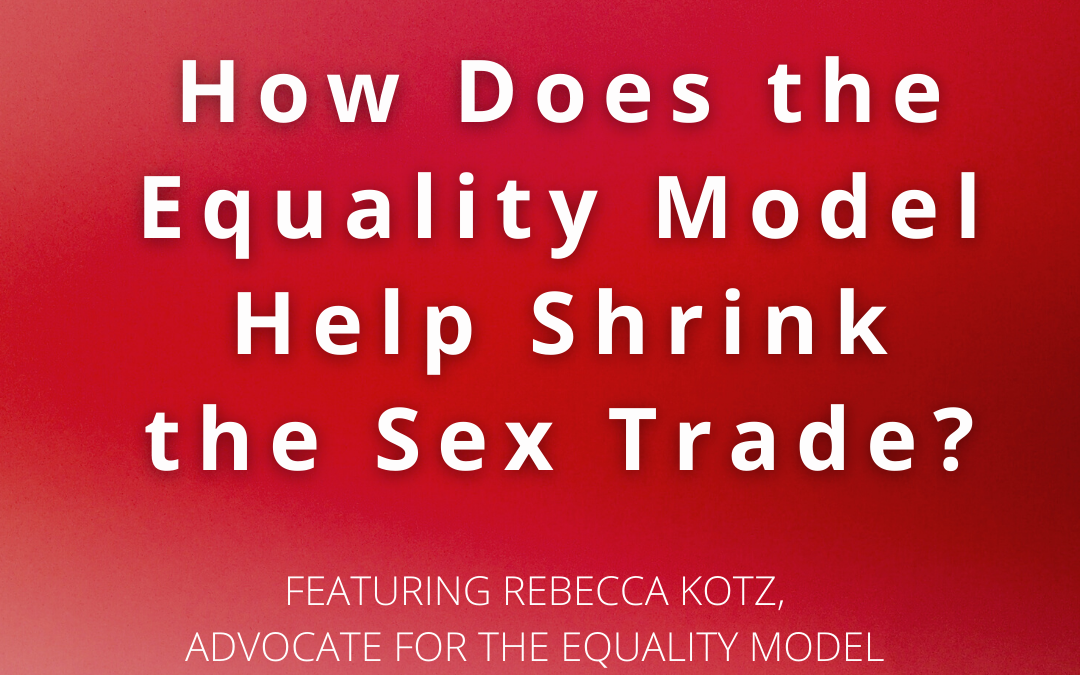 Our returning guest Rebecca Kotz unpacks The Equality model, which aims to partially decriminalize prostitution, “shrinking the sex trade” and a step forward in ending sexual exploitation. Rebecca says this goes beyond a policy change, but also involves identifying the ways victims are coerced into the sex trade and working to comprehensively cover those vulnerabilities. She shares the need for service providers to be trained well when working with victims as well and questions our reliance on the criminal/legal system as the primary path out of prostitution. She also explains how social norms also need to shift as a majority of victims of sex trafficking receive little understanding or support once they are considered an adult, and therefore considered responsible for their actions by the public at large. In addition, she shares the need to end the demand for prostitution and, more broadly, the normalization of sexual coercion, objectification, and commodification. If you’d like to learn more about the Equality Model, visit: www.equalitymodelus.org To learn about Minnesota’s campaign for partial decriminalization, Safe Harbor for All, visit: www.sh4all.org In March of 2022, I piloted this new presentation with women student leaders at the College of St. Benedict's and at a St. Cloud State University human sexuality class. The session was titled, The Revolution is COMING: Sexual Politics, Pleasure Equity, and Cliteracy. This session gives participants an opportunity to (re)learn and discuss the politics around women's sexuality, pleasure and orgasm in/equity, cliteracy, and examine cultural messaging about sex and gender roles, desire, and the impact of sexual trauma on sexuality. I also share resources and strategies for change.  Sporting my "glitoris" shirt prior to presenting on campus Sporting my "glitoris" shirt prior to presenting on campus This is a great presentation topic for college students, adults, women's groups, men's groups, pre-marital/marriage groups, conferences, etc. What inspired me to take on this new topic is recognizing how little people of all genders know about the clitoris and the lack of prioritization of pleasure for people who have them! I have had many conversations with women of all ages who had been having sex for years (even decades!) and did not know where their own clitoris was located and/or never had an orgasm. This both pained me... and pissed me off. THIS IS A FREAKING TRAGEDY YA'LL... Our "sexual education" system protects patriarchal sexual norms. "Sex ed" is purposefully designed to invisibilize and fail women, queer, and gender-marginalized folks. At the college I work at, students were really interested in inviting a speaker to talk about the orgasm gap on campus. We searched... and there were only a handful of speakers we could find throughout the country that spoke on this topic... and only one or two speakers who lived in our state. So, here I am. Talking all about clits and other important stuff because women's sexual lives are not trivial. Another one of my many life missions is for women to have better sex and to openly, proudly, unashamedly talk about women's sexual pleasure and orgasm equity. The personal is political and the political is personal! I am a feminist practitioner with a social and political science background. No, I can't tell you the biology or give the detailed specifics surrounding the science of arousal and orgasm, but that's not really what I see audiences are looking for anyway. Pleasure/orgasm inequity has far less to do with biology, sex/gender differences, or actual orgasm difficulties as it has to do with power, social and cultural norms, patriarchy, sexism, sex/gender roles, sexual entitlement, and this fabulously accurate new term I'm hear more: "strategic incompetence." It also has a lot to do with who defines "sex."
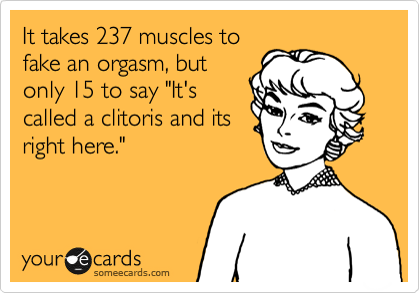 Those questions are mostly rhetorical, as the answer(s) is literally hitting us on the head with a giant brick. So, is the content I share in this presentation cutting-edge, earth-shattering, wildly innovative, and novel? Nope. Sometimes, we just have to collectively face the music. I'll be sharing the research, allowing us some space to discuss, learn, unlearn, and think critically to confront the silly sexual messaging we receive about the "mysterious female orgasm" because, oh heavens, women's bodies are sooooo complicated. *Eye roll* Yes, there a bit of snark in this presentation. How could there not be? Sometimes, we must laugh at the absurdity. And then... fight for the revolution. It's COMING. When attempting to understand what perpetuates such crimes as sexual abuse and exploitation, especially against women, we may only want to think of the individual players involved. But could we be missing a key component?
Our guest Rebecca Kotz asserts that if we want to see the tide of oppression change, we need to consider the deeply-entrenched systems in place which create ideal conditions for these crimes to happen in the first place. Rebecca has worked tirelessly to advocate for big-picture change in her home state of Minnesota, which has included creation and facilitation of Safe Harbor programming for adult and minor victims of sex trafficking in addition to a feminist-rooted accountability program for men convicted of soliciting prostituted/trafficked individuals. 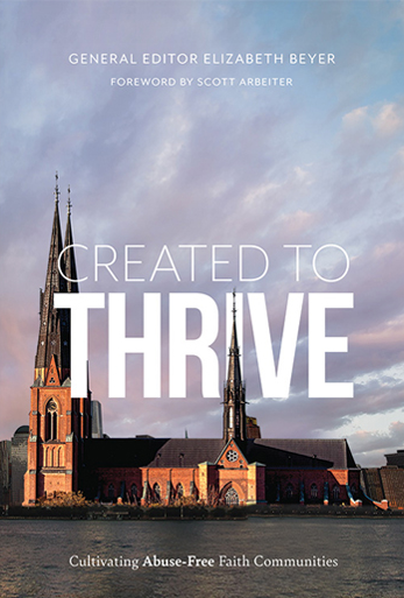 When I first heard CBE (Christian for Biblical Equality) International intended to compile and edit a book for faith communities on the topic of domestic/dating abuse and violence, I was excited, but more than anything, deeply relieved. Few organizations (faith-based AND secular orgs) have enough courage to confront the roots of violence. After a decade of working within the anti-violence movement, I remain frustrated with how rarely non-profits and educators name the problem: male socialization/masculinity under patriarchy, sexism, misogyny, colonialism, white supremacy, etc., Though I have trained and organized within faith communities for many years, most of my professional work has been in secular/non-faith-based organizations and agencies. As I look around at the approaches of anti-violence organizations, the growing trend within these organizations and movements is to dilute and de-politicize them completely from their feminist origins and analysis. Men's violence against women is a highly political issue. When I say "political," I don't mean partisan politics (e.g., Democrat/Republican or conservative/liberal). Instead, I am speaking about the analysis of power distribution, inequality, oppression, and the roots of social issues. Because nonprofits are in a position of needing to constantly beg for money, too many organizations purposefully avoid moving beyond the surface to appease foundations and the state agencies/grants that fund them. This often requires making complex social and political issues as palatable as possible to appeal to donors who can write big enough checks to sustain the work. It's a tricky and ethically questionable position to be in constantly... that is why I respect CBE’s honesty about the roots of violence. They are one of the rare organizations that choose not to separate abuse/violence from its ideological source: patriarchy, unequal power distribution, and toxic theology (CBE President Dr. Haddad's often-referenced line, "ideas have consequences"). These points are at the forefront of all their public analysis and messaging, not tucked away. I started writing for Created to Thrive: Cultivating Abuse-Free Faith Communities almost four years ago. So much has changed for me, and in the world, since then. Of course, my beliefs continue to evolve since I submitted this work. I have been in the midst of a religious "deconstruction" period for many years and remain highly critical of American Christianity and the Religious Right. Still, writing and contributing to this book felt like an important call for me, even while ambivalent about organizing in faith communities and recognizing the challenges, frustrations, and pain it can bring. I continue to believe doing feminist work in faith communities is necessary because I believe faith-based defenses of patriarchy are the number one reason why patriarchy maintains its stronghold. Nothing else matters to religious folks, including the harm their ideas and theology may inflict, if they genuinely believe they are "on god's side." We will never end sexual and domestic abuse until we can untangle and dismantle the theological beliefs that justify the sin of patriarchal violence: 1. the obsessive religious lust for power and control 2. the fundamental belief in male dominance/female subordination as the will of God. In Created to Thrive, I explore the impact of patriarchal beliefs on our sexuality and the pervasive reality of sexual violence in intimate relationships. I have written two chapters in this book: one on sexual violence by intimate partners, the other on healthy sexuality and consent. Created to Thrive highlights how the patriarchal sin of men’s violence against women has robbed us of the beauty of healthy, healing, and enriching egalitarian relationships—and how we can take back what sexist politics and theology has stolen from us. Sexual violence is one of the most common forms of abuse in marriage, the most normalized, and the least discussed in church. For too long, faith communities have sent messages that anything sexual within the marriage is acceptable, including sexual domination and coercion. I wrote these chapters to bring to light a still-taboo topic and re-imagine a new path toward true sexual ethics and intimate justice. I believe the last few years of socio-political crises have catapulted a significant consciousness-raising/reflective awakening period for the Christian community. I think this book is timely as a new era of Christ-followers emerge and hunger for more: those willing to tear down tradition, institutions and dogma for a more authentic faith, those willing to re-envision safety, push for accountability, and engage in the persistent, long-term fight that justice requires. So, all that to say, I’m excited for the debut of this resource. I hope you share it with your faith communities and Christian friends! Order the book HERE 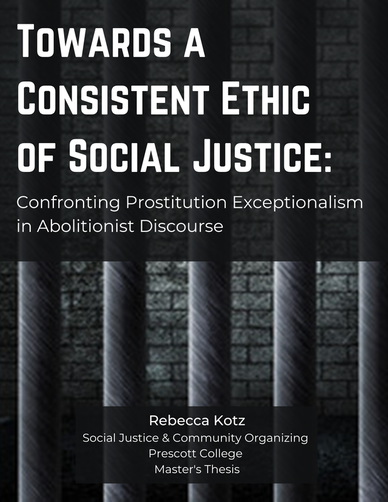 Social Justice & Community Organizing Master's Thesis Abstract (c) Rebecca Kotz | May 9, 2021 Please contact me if you are interested in reading and/or providing feedback on this thesis! Please e-mail me at [email protected] Abstract Are [prison] abolitionists committed to ending all forms of oppression, or do exceptions for sexual exploitation exist? This thesis uses radical feminist, anti-neoliberal, neo-Marxist, and anti-violence movement analysis to examine and confront the ideological contradictions in prison abolition discourse. Though abolitionist discourse promotes revolutionary, anti-capitalist principles, it adopts neoliberal “sex work” ideology that reinforces objectification, commodification, and the globalization of the prostitution industrial complex. Abolitionist discourse recognizes the multiplicity of harm and enslavement but supports a false consent/coercion binary that ignores the entrapment and less visible cages within the sex trade. While claiming to envision transformative justice, abolitionist discourse pivots to prostitution reformism and tolerance of sexual exploitation. Finally, abolitionist discourse analyzes how spectacles of violence create public support for prison expansion yet does not consider how pornography acts as similar propaganda that normalizes sexualized dominance and sadism. The significance of these findings affirms the essential need of the prostitution and prison abolition movements to join forces to end interpersonal and state-sanctioned patriarchal violence to advance a consistent ethic of social justice at every scale. |
Categories
All
Archives
March 2024
|
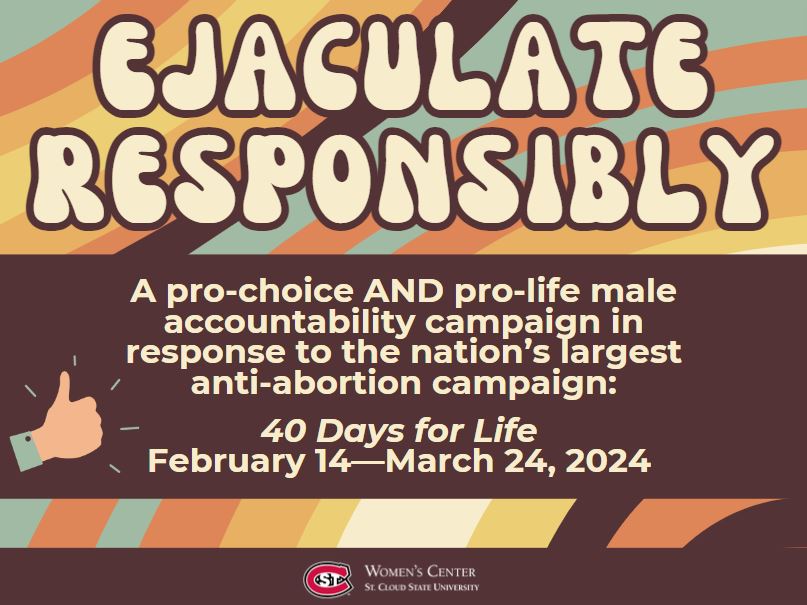















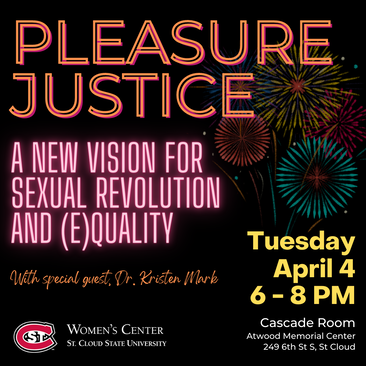
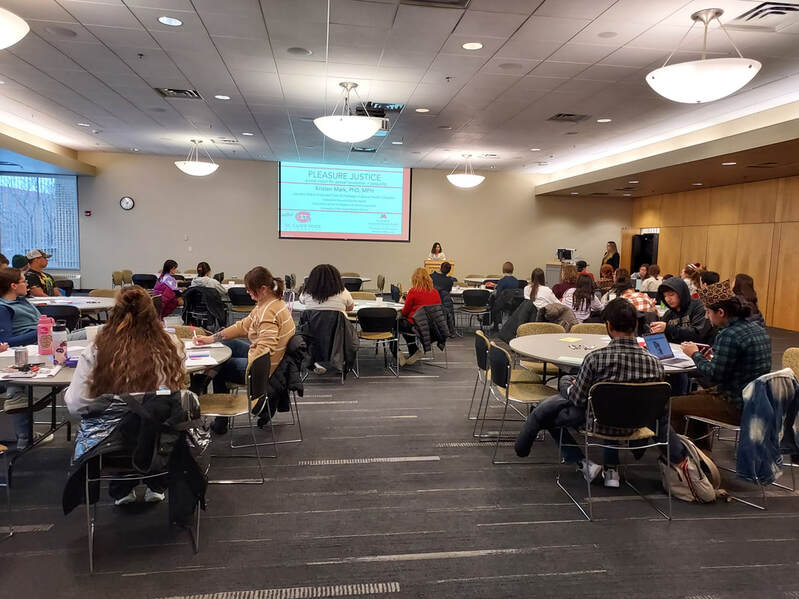
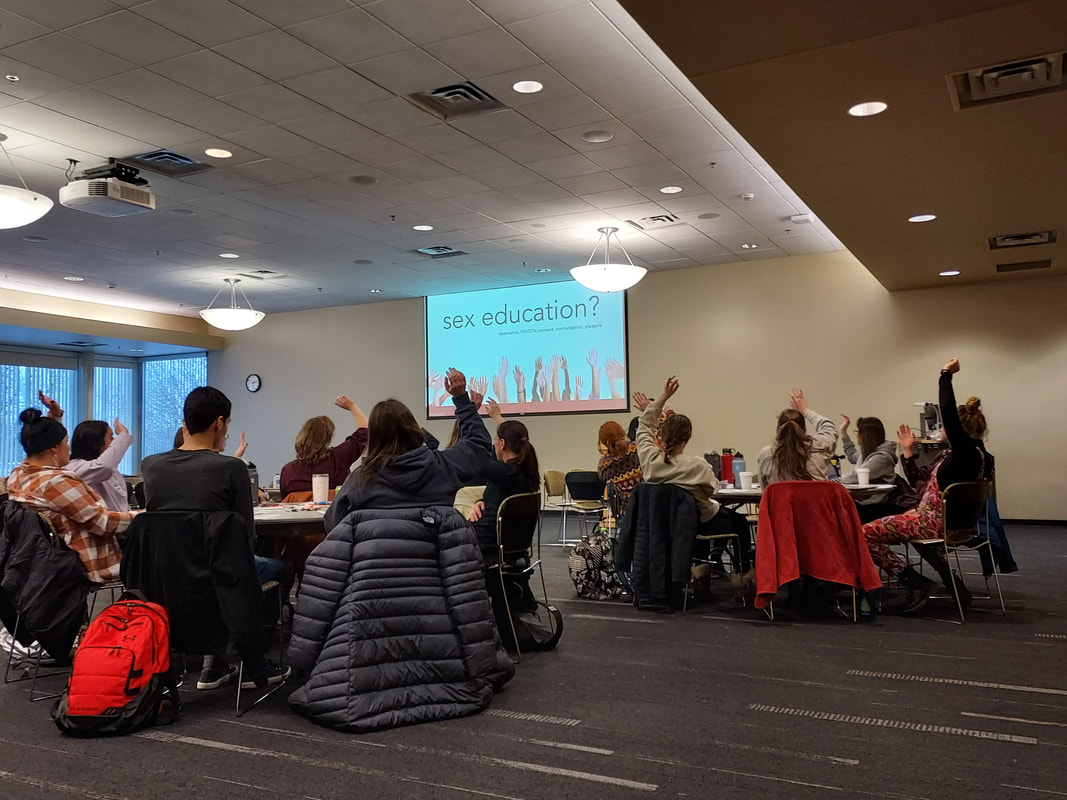
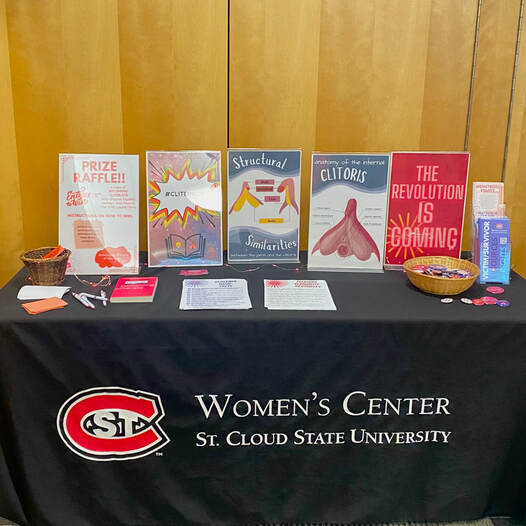
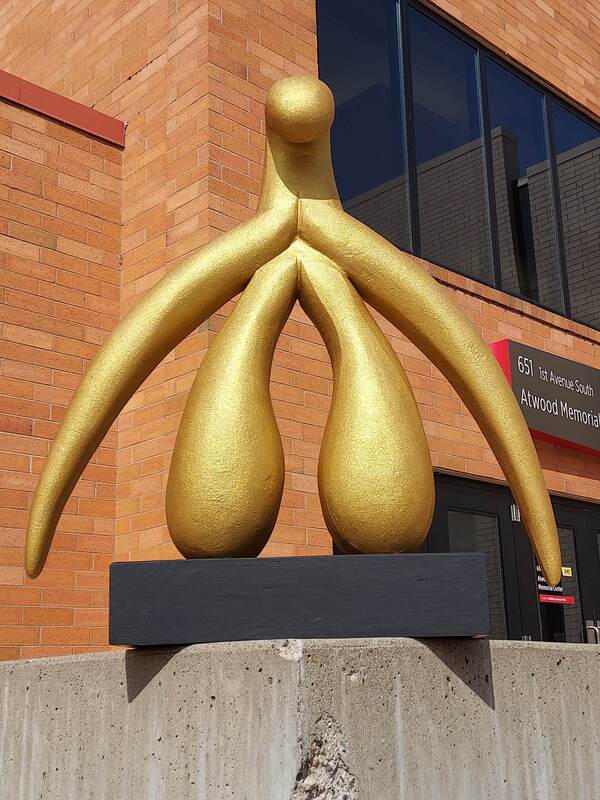
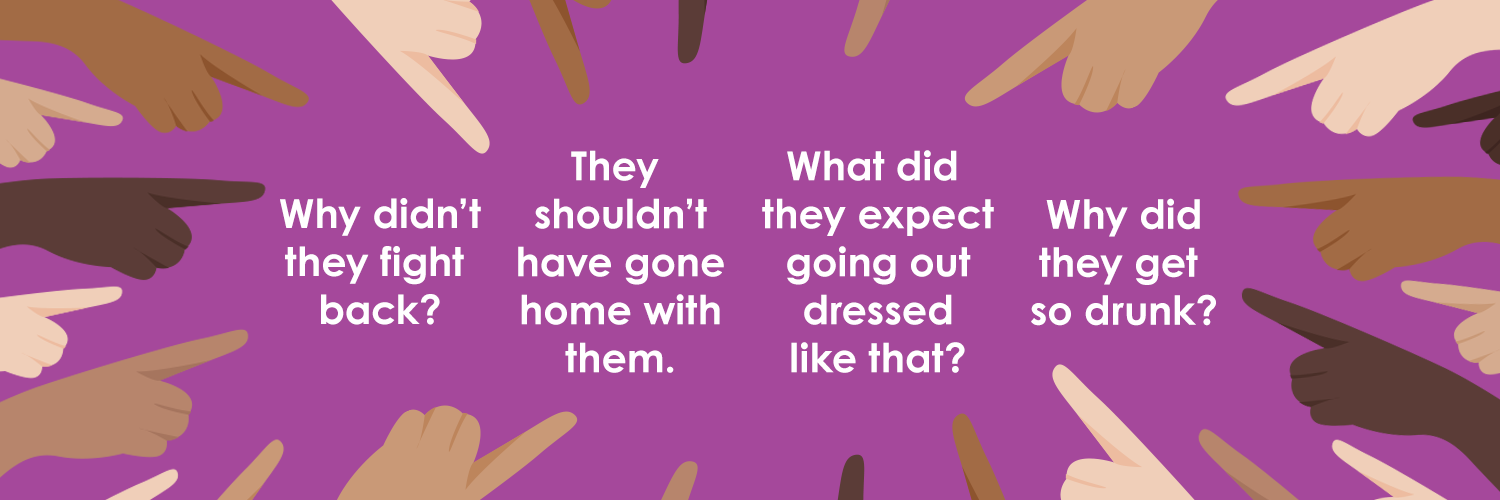
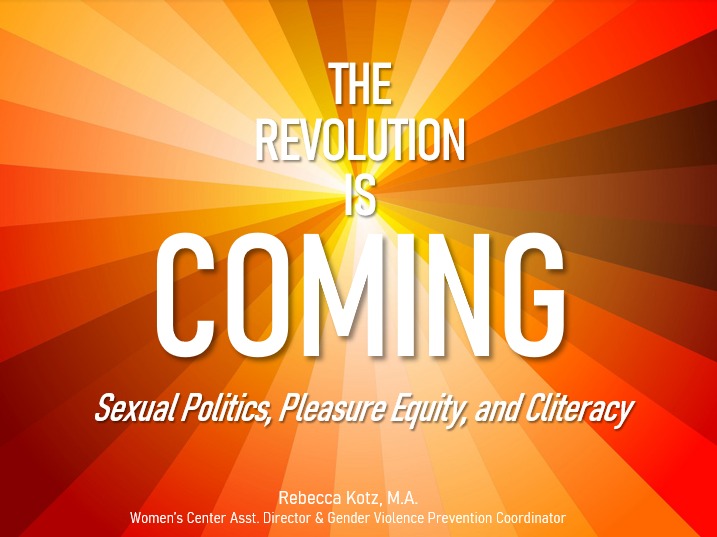
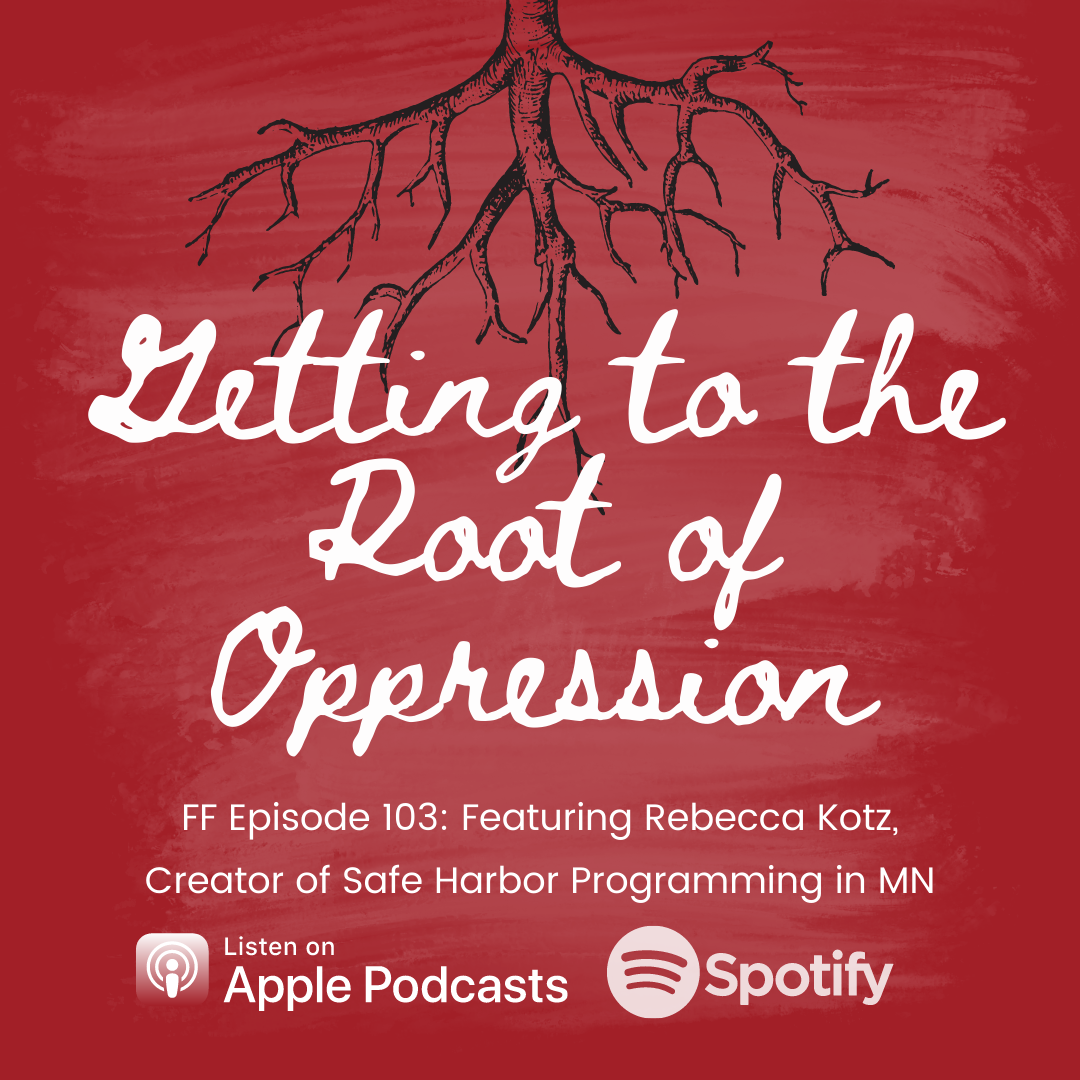
 RSS Feed
RSS Feed